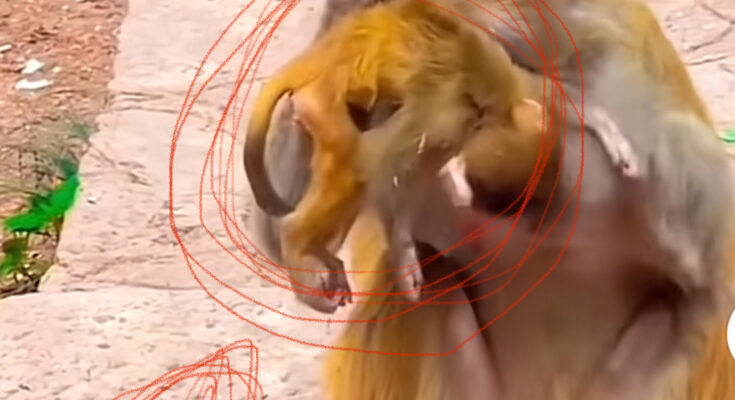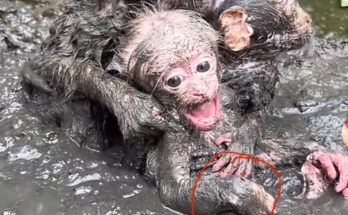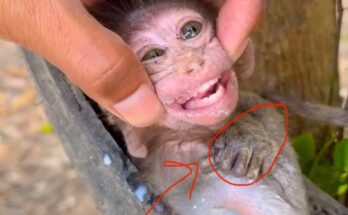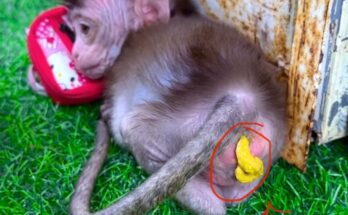A Mother Monkey Lost Her Baby When She Was Not Around: A Glimpse into the Wild’s Harsh Reality
In the heart of the dense tropical forest, where vines coil around ancient trees and the air hums with the calls of exotic birds, a tragic story unfolded—one that echoes the deep emotional bonds found not just among humans, but also among animals.
She was a dusky langur, a gentle species known for their expressive eyes and nurturing nature. As the sun rose through the canopy, painting golden patches on the forest floor, this mother monkey set out to forage for food. Her baby, barely a few weeks old, was nestled safely in the high branches of a fig tree, a place she thought was secure. But nature, for all its beauty, also hides threats in silence.
While the mother was away, a predator—likely a clouded leopard or a hungry eagle—made its move. The forest offers little mercy to the vulnerable. By the time the mother returned, her baby was gone. No cry. No scent trail. Just an eerie silence that spoke louder than any scream ever could.
Witnesses—researchers observing primate behavior nearby—watched as the mother searched frantically, calling out in desperation. Her cries pierced the forest air, drawing attention from other monkeys who watched in quiet understanding. Some approached her, offering what little comfort they could in the form of grooming and presence. Others simply stayed close, acknowledging the pain in their own silent way.
This event may seem ordinary in the grand scheme of wildlife survival, but it reminds us of something vital: animals grieve.
Primates, especially monkeys, share more with us than just DNA. They form families. They protect. They feel loss. Studies have shown mother monkeys carrying their deceased infants for days, unable or unwilling to let go. It’s not instinct alone—it’s emotion, connection, and heartbreak.
In this story, the loss of a baby is more than just another moment in the wild. It’s a reflection of how fragile life can be, and how motherhood transcends species boundaries.
Wildlife conservationists often warn us about the fragility of ecosystems, but it’s stories like this that strike a deeper chord. They remind us that every creature, no matter how small or distant from our daily lives, has a story, emotions, and relationships that matter.
As we continue to encroach on natural habitats, fragment forests, and reduce safe spaces for animals, such stories will only become more common. Predators aren’t the only threat. Human activity—deforestation, hunting, noise pollution—breaks the balance that these mothers rely on to keep their young safe.
The mother monkey eventually stopped searching. She sat in silence, staring into the trees. Her grief unspoken, yet profoundly felt. A quiet moment in the vast forest, reminding us all of the pain of loss, and the silent strength it takes to continue living.
Final Thought:
In a world where we often forget the depth of the animal world, may this mother monkey’s heartbreak remind us to walk more gently on the Earth—and never underestimate the emotional lives of the creatures who share it with us.



